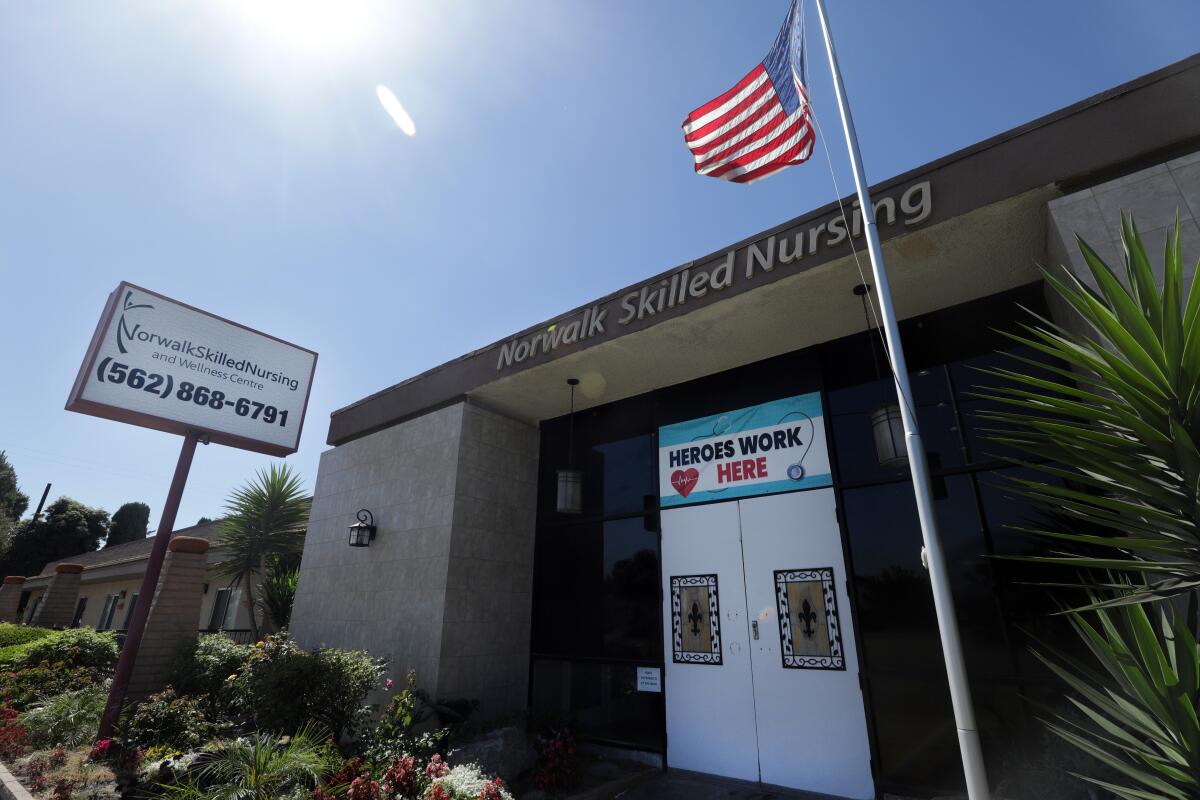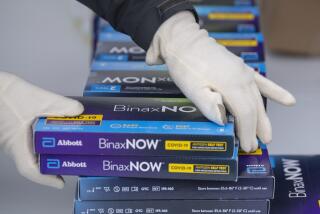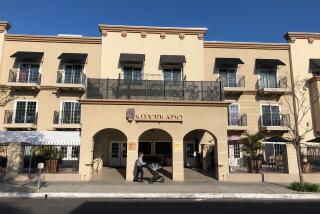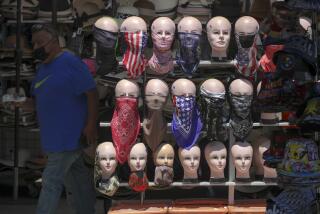Los Angeles County officials acknowledge delays in testing at nursing homes

- Share via
Los Angeles County officials have acknowledged that their testing of residents and staff at nursing homes is taking too long, following a Times investigation that found it took the county health department more than a week to provide tests for employees at Norwalk Skilled Nursing & Wellness Center after a resident tested positive.
Since that resident became ill in mid-May, the home has suffered a serious outbreak of COVID-19, with at least 43 residents and 34 employees infected, Los Angeles County data show. At least six have died.
The situation underscores how quickly the coronavirus can spread in skilled nursing homes and how essential early, widespread testing is.
“I don’t think it’s good when there’s delays at all,” county Public Health Director Barbara Ferrer said during a Friday briefing. “I know that our team is working really hard, almost around the clock to make sure that we don’t continue to see delays, especially unnecessary delays, in testing at the skilled nursing facilities.”
County health officials, recognizing the threat posed by healthcare workers — who frequently work at more than one home and may be infected but asymptomatic — pledged in late April to test residents and staff at all of the county’s nearly 400 skilled nursing facilities. A month later, The Times found, they had managed to finish the job at only about a third of them.
As of Friday, 306 skilled nursing facilities had tested their residents and staff through their own labs, L.A. City’s testing program or with Public Health support, according to Dr. Prabhu Gounder, who works in the communicable disease section of the county health department
Testing at the remaining nine facilities is expected to be completed by the end of next week. That will complete initial testing at all 315 skilled nursing facilities in the county, not including Long Beach and Pasadena — which have their own public health departments — and facilities that are licensed as part of a hospital, Gounder said.
In an interview, County Supervisor Mark Ridley-Thomas, who last month pushed for an inspector general to oversee skilled nursing facilities, stressed the need for “extensive and deep routine testing in those environments.”
“More must be done and it must be done with immediacy. And frankly it has to be made the priority that it deserves to be,” he said.
Of 15 new deaths reported Friday, Ferrer said 10 were among people residing in skilled nursing facilities.
Since the beginning of the coronavirus crisis, elderly nursing home residents, who are by far the most at risk, have suffered a devastating toll. As of Friday, COVID-19 had killed more than 2,000 residents and 64 employees of skilled nursing facilities in California.
Despite a recent uptick in cases as the state economy begins to reopen, the virus appears to be under control in hospitals and other healthcare settings. But nursing homes such as the one in Norwalk, which managed to keep the bug at bay for months, are still suffering outbreaks.
Dr. David Silver, CEO of Rockport Healthcare Services, the company that oversees Norwalk Skilled Nursing and more than 70 other homes in California, acknowledged that it took “a little more than a week” to test staff after the first resident turned up positive. Asked if testing sooner would have limited the outbreak, he said, “I won’t dispute that.”
At the end of May, Norwalk Skilled Nursing, a single-story building occupying about a city block on Imperial Highway, was among the homes county health officials had not gotten around to testing.
More than half a dozen employees, who spoke with The Times on the condition their names not be used for fear of retaliation, said the facility has suffered from a severe shortage of personal protective equipment and allowed nurse aides to move back and forth between the “dirty” isolation unit meant to contain infected residents and the “clean” unit meant for those who weren’t sick yet.
The home also faced the threat of a mass walkout by a scared, exhausted staff unless they start getting hazard pay, the employees said.
As the number of infected residents climbed last month, several nursing assistants said they pleaded with the administration to start testing staff but that their bosses instead waited for the health department to provide test kits, which cost an estimated $150 each.
One employee who had been working with COVID-19 positive residents at the facility said she sought out her own test, even though she was asymptomatic. She tested positive.
Silver said his company had been in regular contact with both state and county health officials. When the first positive patient turned up at the Norwalk facility in mid-May, county officials informed him that “they were the ones who take care of testing,” Silver said.
“They couldn’t do it that day, but they would find a day,” Silver said county officials told him. In the end, it took more than a week for the county to provide the test swabs, Silver said.
According to Public Health, department staff reached out to the Norwalk facility on May 5, requesting information on all employees and residents so that they could be registered with the lab for testing.
An incomplete list was provided on May 13, according to Public Health, something that can delay the process. An updated list was provided on May 18 and testing was completed eight days later.
When asked about the delay, the department said that it had offered to support facilities that were not able to do testing on their own and that at that time there were more than 200 facilities with an outbreak that needed assistance.
Scheduling facilities for testing was done in the order that facilities submitted lists, according to the department. Teams were able to do about seven facilities a day.
More to Read
Sign up for Essential California
The most important California stories and recommendations in your inbox every morning.
You may occasionally receive promotional content from the Los Angeles Times.












